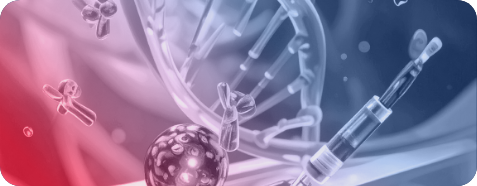Targeted C. difficile Therapeutics
Precision anti-infective technology focused on a microbiome sparing strategy. We target Clostridioides difficile infection (CDI), an antibiotic-associated infectious diarrheal disease, through oral delivery of a targeted Antisense Oligonucleotide.
The Problem
Clostridioides difficile (“Cdiff”) is a spore-forming bacterium that infects humans and non-human mammals worldwide and causes debilitating (sometimes fatal) diarrhea. Cdiff can persist in the GI tract for extended time periods, prevent the recovery of natural, protective microbiota, and thus potentiate recurrent cycles of disease. There is no vaccine to prevent CDI, and antibiotics remain the mainstay of treatment, increasing the likelihood of gut microbiome disruption as well as widespread antibiotic resistance. Thus, there is an urgent unmet need for a microbiome-sparing CDI treatment. In the USA, CDI treatment and mitigation results in a high and chronic health burden on patients and providers, with a ~$2B associated healthcare cost.
The Solution
The offered technology eradicates CDI via a microbiome-sparing intervention that kills Cdiff. The technology consists of an orally-delivered “platform” molecule that is complexed with a “cargo”, specifically, an antisense oligonucleotide designed to curtail C diff replication and kill the pathogen. The platform and cargo are both non-toxic to microbiota, human cells and in rodent models; therefore, the agent is precision-driven only for Cdiff. There is no bypass mechanism for the antisense oligonucleotide impact inside Cdiff, therefore, therefore, there is no possibility of resistance (the agent does not act as an antibiotic). Importantly, the “cargo”, i.e. antisense oligonucleotide, can be easily modified to target any infectious pathogen; thus, the entire technology is predicated on flexibility and precision.
The Opportunity
Treatment of C.diff. Infections in the United States represents a roughly $1B market. While the market slightly shrank during the pandemic, it recovered and is expected to grow by 6-7% each year. Treatment is currently through antibiotics, but alternate treatment regiments through microbiota transplantation are currently under evaluation. Because of the challenges of antibiotic resistance new treatment modalities like the offered technology are needed.
Status
The agent has shown complete killing of all USA-dominant lineages of Cdiff, microbiome-sparing, and eradication of Cdiff in multiple animal models at the same dosing level as Vancomycin, the current standard-of-care CDI antibiotic. The studies showed a significant improvement in the histopathology of the intestinal tract of treated animals. Optimization of the treatment regimen in aged, as well as immune-suppressed, animal models, are on-going.
Meet the Team

Gayatri Vedantam PhD
College of Agriculture, Life & Environmental Sciences

Peter Nestler PhD
Tech Launch Arizona
Contact us today.






